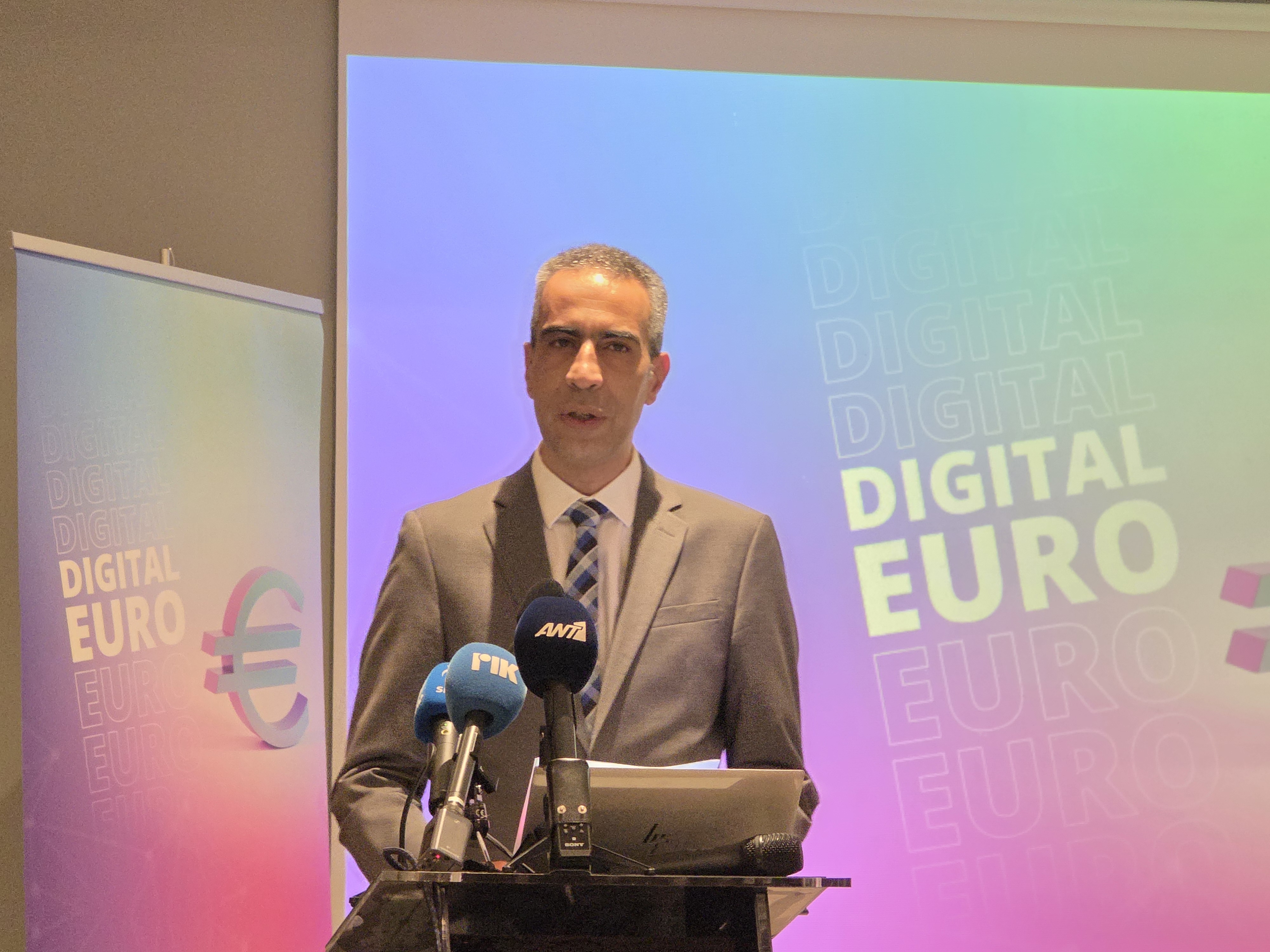The Central Bank of Cyprus (CBC) on Friday held its first special session on the digital euro, bringing together payment service providers, including banks, payment institutions, and electronic money institutions.
The event focused on the European Central Bank’s (ECB) upcoming decision on the next steps of the digital euro project and ongoing legislative negotiations in Brussels on the Single Currency Package.
Delivering the opening address on behalf of CBC governor Christodoulos Patsalides, executive director George Karatzias said “the session was taking place at a decisive moment“, as preparations for the digital euro were nearing a key milestone.
He explained that the meeting coincided with the ECB Governing Council’s imminent decision on the project’s next phase and with intensive legislative discussions in Brussels on the new framework for the single currency.
Governor Patsalides’ central message focused on the need to strengthen Europe’s resilience and reduce Cyprus’ heavy dependence on non-European payment providers.
He urged payment service providers to familiarise themselves with the “Digital Euro Rulebook” and assess how it will affect digitalisation, innovation, and their business models.
Another key appeal from the Governor concerned broader participation by Cyprus’ financial sector in the second round of experimental activities on the ECB’s innovation platform.
Director General of Payments Stelios Georgakis and Head of the Payment Systems Policy and Oversight Division Stella Ioannidou jointly presented the current progress of the digital euro project, the decisions expected in the near future, and the main provisions of the Single Currency Package.
They outlined how these developments will affect payment service providers as future distributors and receivers of the digital euro.
One of their main messages was the importance of using the digital euro platform so that private payment solutions being developed in Cyprus can gain a pan-European rather than a purely national reach.


The highlight of the session was a presentation by Patrick Papsdorf, Director for Rulebook Development at the European Central Bank.
Papsdorf explained the creation of a unified set of standards, processes, and rules for digital euro payments across the euro area.
He said this framework will comply with the legislative provisions now under discussion in Brussels and will form the backbone of the digital euro’s operational structure.
Moreover, Papsdorf discussed the work of the ECB’s Rulebook Development Group, detailing how payment service providers will participate in the digital euro scheme.
He elaborated on eligibility criteria, the enrolment process, resulting obligations, termination or suspension conditions, and procedures for violations.
Moreover, he stated that a revised version of the draft Rulebook had been submitted to the Rulebook Development Group and stressed that “the document is flexible enough to adapt to legislative changes that may emerge during the ongoing discussions on the digital euro regulation”.
Participants were also presented with drafts of minimum user experience standards, illustrative usage scenarios, and comprehensive process flows.
What is more, Papsdorf emphasised to the Cypriot market that “compliance with the rulebook will ensure a standardised, secure, and high-quality user experience for all involved”, while enhancing innovation and competition across the euro area.
He further explained that the organisation of digital euro services, including access, liquidity, and transaction management, will be structured to maintain safety, interoperability, and resilience.
In addition, he said that “the strict adherence to the Rulebook guarantees a uniform and reliable user experience for all stakeholders”.
A roundtable discussion followed, featuring senior officials from the central banks of Greece, Estonia, Austria, and Cyprus.
The participants included Sissy Papagiannidou, Rainer Olt, Asen Naydenov, and Stelios Georgakis, who examined key issues such as cost, network effects (where a payment system’s value increases as more users join) risk assessment, resilience, and market readiness for the adoption of the digital euro.
They agreed that these aspects are not only technically significant but also of strategic importance for Europe’s future.
At the end of the event, attendees had the opportunity to ask clarifying questions and exchange views with the experts.






Click here to change your cookie preferences